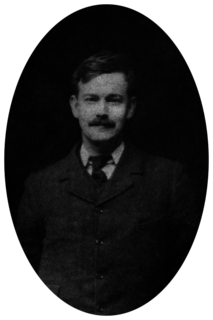A Quote by R. H. Tawney
Too often, contemning the external order as unspiritual, [the Puritan] has made it, and ultimately himself, less spiritual by reason of his contempt.
Related Quotes
When a warrior fights not for himself, but for his brothers, when his most passionately sought goal is neither glory nor his own life's preservation, but to spend his substance for them, his comrades, not to abandon them, not to prove unworthy of them, then his heart truly has achieved contempt for death, and with that he transcends himself and his actions touch the sublime. That is why the true warrior cannot speak of battle save to his brothers who have been there with him. The truth is too holy, too sacred, for words." -Suicide (Gates of Fire)
[Man] is the only animal who lives outside of himself, whose drive is in external things—property, houses, money, concepts of power. He lives in his cities and his factories, in his business and job and art. But having projected himself into these external complexities, he is them. His house, his automobile are a part of him and a large part of him. This is beautifully demonstrated by a thing doctors know—that when a man loses his possessions a very common result is sexual impotence.
Jesus has given me ample resources to meet the spiritual needs of others because He has given me Himself and He has give me His Word. But in order to meet the spiritual needs of the multitude, I have to spend hours alone with Him in the prayerful meditation of His Word so that my spiritual needs are met.
The fact that labour is external to the worker, i.e., it does not belong to his intrinsic nature; that in his work, therefore he does not affirm himself but denies himself, does not feel content but unhappy, does not develop freely his physical and mental energy but mortifies his body and his mind. The worker therefore only feels himself outside his work, and in his work feels outside himself.
The human race may be compared to a writer. At the outset a writer has often only a vague general notion of the plan of his work, and of the thought he intends to elaborate. As he proceeds, penetrating his material, laboring to express himself fitly, he lays a firmer grasp on his thought; he finds himself. So the human race is writing its story, finding itself, discovering its own underlying purpose, revising, recasting a tale pathetic often, yet none the less sublime.
It may be no less dangerous to claim, on certain occasions, too little than too much. There is something captivating in spirit and intrepidity, to which we often yield as to a resistless power; nor can we often yield as to a resistless power; nor can he reasonably expect the confidence of others who too apparently distrusts himself.
He who does not meditate acts as one who never looks into the mirror and so does not bother to put himself in order, since he can be dirty without knowing it. The person who meditates and turns his thoughts to God who is the mirror of the soul, seeks to know his defects and tries to correct them, moderates himself in his impulses and puts his conscience in order.
You realise fame is something that if you court it too much or if you indulge in it too much, it will have a negative effect ultimately on your mental health and self esteem, because fame is ultimately about achieving positive self esteem through external factors, and that's a losing game, I would say.

































